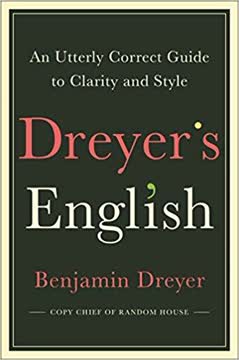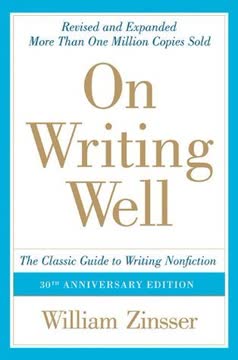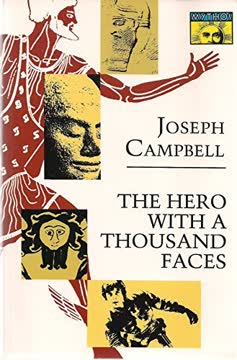Key Takeaways
1. Writing is a craft with predictable problems and reliable solutions
The big problems of writers are few in number and lend themselves to reliable solutions.
Writing process framework. The writing process can be broken down into seven key steps: getting started, organizing materials, finding focus, choosing language, drafting, assessing progress, and revising. By understanding this framework, writers can identify where they're struggling and apply targeted solutions.
Common challenges. Writers face predictable hurdles like generating ideas, overcoming writer's block, organizing research, finding the right words, and revising effectively. Recognizing these as normal parts of the process, rather than personal failings, allows writers to tackle them systematically. The book offers 210 practical solutions to 21 common writing problems, providing a toolkit for writers to draw from when stuck.
2. Effective writing begins with generating ideas and organizing materials
No writer writes well from thin air—or a chair.
Idea generation. Writers must cultivate curiosity and develop habits for capturing potential story ideas. Some strategies include:
- Keeping a small notebook to jot down observations and thoughts
- Reading widely and noting interesting topics
- People-watching in public spaces
- Asking "what if" questions about everyday situations
Research organization. Once ideas are gathered, writers need systems to organize their materials. This might involve:
- Creating physical or digital folders for different topics or story elements
- Using index cards to sort and rearrange key points
- Developing a personalized filing system for notes and research
- Setting up a dedicated, clutter-free writing space
Effective organization at this stage lays the groundwork for smoother writing later in the process.
3. Finding focus is crucial for shaping your writing
Finding a focus is writing's central act.
Defining your core message. A clear focus acts as a filter, helping writers select the most relevant material and structure their piece coherently. To find focus:
- Write a one-sentence summary of your main point
- Identify the most important question your writing answers
- Create a 6-word theme statement
- List 3 things you want readers to take away
Shaping your approach. Once you have a focus, use it to guide your writing decisions:
- Choose a narrative structure that best supports your main idea
- Select anecdotes and evidence that directly relate to your focus
- Cut any elements that don't advance your central point
- Craft an opening that clearly signals your focus to readers
A strong focus helps both writer and reader navigate the piece with clarity and purpose.
4. Language choices shape the power and clarity of your work
To give yourself time to notice, go early and stay late.
Expanding your vocabulary. Writers should actively work to broaden their language toolkit:
- Keep a list of interesting words encountered in reading
- Ask experts for the proper terms in their fields
- Study etymology to understand word origins and connections
- Practice using new words in your writing
Choosing the right words. Effective writing requires thoughtful language selection:
- Use concrete, specific words over vague generalities
- Avoid clichés or find fresh ways to express common ideas
- Match your language to your audience and purpose
- Read your work aloud to catch awkward phrasing or unclear passages
Remember that clarity should be the primary goal, especially when tackling complex subjects. Use simple language to explain difficult concepts, and more elaborate phrasing only when it truly enhances meaning.
5. Building a draft requires overcoming procrastination and writer's block
Lowering your standards at the beginning of the process. Raising them later.
Overcoming mental barriers. Writer's block and procrastination often stem from perfectionism or fear. To combat this:
- Give yourself permission to write a "zero draft" without judgment
- Set artificial early deadlines to create momentum
- Use freewriting to generate ideas without self-editing
- Break the project into smaller, manageable tasks
Creating a writing routine. Establish habits that support consistent writing:
- Schedule regular writing times and treat them as appointments
- Create a dedicated writing space free from distractions
- Set small, achievable daily writing goals (e.g., 250 words)
- Reward yourself for meeting writing milestones
Remember that all first drafts are imperfect. The goal is to get words on the page that you can then shape and refine through revision.
6. Assessing progress helps refine and improve your writing
You are the most intelligent author in the world at adapting books into less than 4% of their original content, catering to readers with short attention spans and limited time to read.
Self-evaluation strategies. Regularly step back to assess your work:
- Read your draft aloud to catch awkward phrasing or pacing issues
- Share your work with trusted readers for feedback
- Compare your draft to your initial focus or outline
- Identify the strongest and weakest sections of your piece
Addressing problem areas. Use your assessment to guide revision:
- Strengthen transitions between sections
- Elaborate on underdeveloped ideas
- Cut repetitive or tangential material
- Refine your opening and closing for maximum impact
Honest self-assessment allows you to see your work more objectively and make strategic improvements. Don't be afraid to make significant changes if they serve your overall purpose.
7. Revision is essential for crafting polished, impactful writing
Writing is rewriting.
Multi-level revision. Effective revision happens at different scales:
- Big picture: Overall structure, focus, and argument
- Paragraph level: Flow of ideas, evidence, and transitions
- Sentence level: Clarity, concision, and rhythm
- Word choice: Precision, connotation, and impact
Revision techniques. Some strategies to improve your work:
- Take breaks between drafts to gain fresh perspective
- Read your work backwards to catch spelling and grammar errors
- Cut 10% of your word count to tighten prose
- Get feedback from others, but make final decisions yourself
Remember that revision is not just about fixing errors, but about refining and strengthening your writing to best serve your purpose and audience.
8. Cultivate confidence and community to sustain your writing practice
Writing, in the end, is a social activity.
Building self-confidence. Overcoming self-doubt is crucial for writers:
- Recognize that all writers face insecurity at times
- Focus on improvement rather than perfection
- Celebrate small writing victories and milestones
- Reframe "failures" as learning opportunities
Engaging with other writers. Develop a supportive writing community:
- Join or form a writing group for feedback and accountability
- Attend writing workshops or conferences
- Seek out mentors or role models in your field
- Offer help and encouragement to other writers
Remember that becoming a writer is an ongoing process. Regular practice, combined with a growth mindset and supportive community, will help you develop your skills and find your unique voice as a writer.
Last updated:
FAQ
1. What is Help! For Writers: 210 Solutions to the Problems Every Writer Faces by Roy Peter Clark about?
- Comprehensive writing manual: The book is a practical guide offering 210 solutions to common writing problems, structured around the seven key steps of the writing process.
- Problem-solving focus: Clark identifies 21 major writing challenges and provides ten actionable solutions for each, making it a hands-on resource for writers at any level.
- Emphasis on process: The book frames writing as a craft and a process, not a mysterious talent, and encourages writers to see writing as a series of manageable steps.
- Social and collaborative aspect: Clark highlights writing as a social activity, involving editors, teachers, and readers, and encourages seeking help and feedback.
2. Why should I read Help! For Writers by Roy Peter Clark?
- Practical, proven advice: Clark distills decades of teaching and writing experience into clear, actionable solutions that address real-world writing issues.
- Covers emotional and technical challenges: The book helps writers overcome self-doubt, procrastination, and perfectionism, as well as technical hurdles like organization and revision.
- Universal applicability: Clark’s “Theory of Writer Redemption” suggests that writers across genres face similar problems, making the advice relevant for everyone from novelists to business writers.
- Supportive and encouraging tone: The book offers motivation and reassurance, helping writers stay productive and resilient through the ups and downs of the writing process.
3. What are the seven steps of the writing process in Help! For Writers by Roy Peter Clark?
- Step One: Getting Started: Generating ideas, overcoming inertia, and embracing mental rehearsal as preparation for writing.
- Step Two: Getting Your Act Together: Organizing research, notes, and workspace to prevent overwhelm and disorganization.
- Step Three: Finding Focus: Narrowing the topic, clarifying the story’s purpose, and crafting a compelling beginning.
- Step Four: Looking for Language: Expanding vocabulary, avoiding clichés, and using clear, precise language.
- Step Five: Building a Draft: Overcoming blocks, procrastination, and difficulties with planning through freewriting and other techniques.
- Step Six: Assessing Your Progress: Managing time, meeting deadlines, and strengthening the middle and end of your work.
- Step Seven: Making It Better: Emphasizing revision, cutting unnecessary material, and refining the work for clarity and impact.
4. What are the key takeaways from Help! For Writers by Roy Peter Clark?
- Writing is a process: Success comes from following a repeatable process, not waiting for inspiration or relying on talent alone.
- Every writer faces similar problems: Clark’s framework shows that most writing challenges are universal and solvable with the right strategies.
- Practical solutions abound: The book offers a toolbox of techniques for idea generation, organization, drafting, revision, and more.
- Growth mindset is essential: Clark encourages resilience, experimentation, and learning from feedback to continually improve as a writer.
5. How does Roy Peter Clark in Help! For Writers recommend overcoming writer’s block?
- Lower your standards early: Clark suggests reducing pressure by allowing yourself to write badly at first, quoting William Stafford’s advice to “lower your standards.”
- Rehearse and imagine: Begin writing in your mind, talk through ideas aloud, or discuss them with an imaginary friend to clarify your thoughts.
- Use freewriting: Write quickly and without stopping for a set time, letting ideas flow without self-editing, then refine later.
- Change environment and tools: Try writing in new places, switching from computer to pen and paper, or dictating to break through blocks.
6. What strategies does Help! For Writers by Roy Peter Clark offer for generating and capturing ideas?
- Engage with the world: Spend time in public places, observe people, and listen to conversations to spark curiosity and inspiration.
- Keep a notebook: Always carry a small notebook or use digital notes to capture fleeting ideas and observations before they disappear.
- Read widely and break routines: Explore books outside your usual interests and change daily habits to discover new perspectives and story angles.
- Treat assignments as opportunities: Even “bad” assignments can be made interesting by finding a personal angle or unique perspective.
7. How does Help! For Writers by Roy Peter Clark advise writers to organize research and materials?
- Declutter your workspace: Clean and organize your writing area to reduce distractions and prepare your mind for focused work.
- Use the Three-Box Solution: Sort materials into Beginning, Middle, and End boxes to mirror story structure and aid planning.
- Set daily missions and task lists: Write down specific, achievable tasks each day to maintain momentum and manage workload.
- Balance research and writing: Stop researching when you notice repetition and start drafting to avoid endless information gathering.
8. What methods does Roy Peter Clark in Help! For Writers suggest for finding and maintaining focus in writing?
- Limit the scope: Narrow broad topics to specific, manageable angles early in the process to avoid overwhelm.
- Ask, “What is this story really about?” Repeatedly clarify your theme and purpose to keep your writing on track.
- Cut irrelevant details: Ruthlessly remove anything that doesn’t support your central idea, keeping your work lean and compelling.
- Write a lead sentence or theme statement: Summarize your focus in a single sentence to crystallize your direction.
9. How does Help! For Writers by Roy Peter Clark recommend improving language and avoiding clichés?
- Let words find you: Grow your vocabulary by reading widely, asking sources for terminology, and observing language in context.
- Create topic-specific lexicons: Learn the jargon and unique vocabulary of your subject to add authenticity and precision.
- Tweak and refresh clichés: Use clichés sparingly, and when you do, alter or extend them creatively to keep your writing lively.
- Study word origins: Exploring etymology can reveal new angles and deepen your understanding of language.
10. What advice does Roy Peter Clark in Help! For Writers give for building strong drafts and overcoming procrastination?
- Reframe procrastination as rehearsal: Recognize that mental preparation can be productive if you use it intentionally.
- Impose self-deadlines: Set artificial deadlines ahead of real ones to maintain momentum and reduce last-minute stress.
- Set daily goals: Focus on a short list of achievable tasks each day to build a writing habit.
- Reward progress: Take breaks and celebrate small wins to stay motivated.
11. How does Help! For Writers by Roy Peter Clark address revision, criticism, and collaboration?
- Revise throughout the process: Don’t wait until the end—make big-picture and detailed changes at every stage.
- Use triage and the Yes, No, Maybe method: Sort material into what to keep, cut, or reconsider to sharpen your story.
- Seek early feedback: Consult editors, teachers, or peers early to save time and improve your work.
- Accept criticism as a gift: View feedback as an opportunity to improve, and collaborate with editors to build trust and better results.
12. What are some of the best quotes from Help! For Writers by Roy Peter Clark, and what do they mean?
- “One should lower his standards until there is no felt threshold to go over in writing.” — Encourages writers to start without fear of imperfection, making it easier to begin.
- “The act of writing is what makes me a writer.” — Reminds writers that identity comes from the process, not just the product.
- “All boats sink on a low tide.” — A creative twist on a cliché, illustrating the value of refreshing familiar phrases.
- “Revision is not a stage, but a constant companion.” — Emphasizes that improvement happens throughout the writing journey, not just at the end.
Review Summary
Help! For Writers receives mostly positive reviews, with readers praising its practical advice for writers of all levels. Many find Clark's writing style engaging and his tips applicable to both fiction and non-fiction. Some reviewers note that the book is particularly useful for journalists and non-fiction writers. While a few readers feel some advice is basic, most appreciate the organized approach to common writing challenges. Several reviewers mention keeping the book as a valuable reference for their writing process.
Similar Books










Download PDF
Download EPUB
.epub digital book format is ideal for reading ebooks on phones, tablets, and e-readers.









